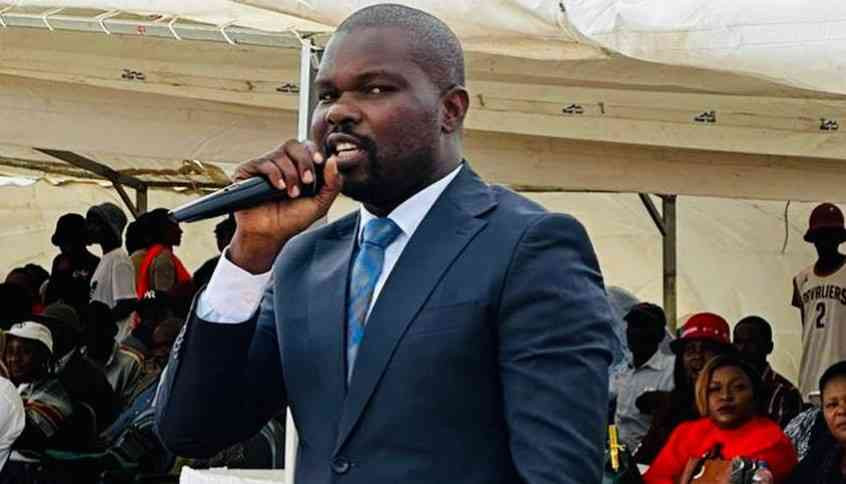
PRESIDENT Emmerson Mnangagwa’s government this week showed its many colours on many issues of national importance.
The biggest lesson from all events once again proves Zanu PF as the Roman god — Two-headed Janus, depending which face is looking at you.
Two-headed Janus refers to the Roman god Janus, who has two faces, one looking forward and one looking backwards.
Wikipedia says: “Janus is the god of beginnings, gates, transitions, time, duality, doorways, passages, frames and endings.”
Janus is thus a symbol of the ever-changing nature of time and human experience, always looking forward to new beginnings, while also reflecting on the past.
First was the national health delivery question raised by Youth Development minister Tino Machakaire.
Machakaire lamented the deterioration of services at public health institutions and uncharacteristic of Zanu PF leaders, even invited Mnangagwa to check for himself.
A day later, the Health ministry issued a public statement, claiming all was rosy at public institutions and accused those spreading the message of collapsed services as suffering from selective amnesia.
- Corruption Watch: Get scared, 2023 is coming
- Corruption Watch: Get scared, 2023 is coming
- Letters: Ensuring Africa’s food security through availability of quality seeds
- Is military's involvement in politics compatible with democracy?
Keep Reading
The second case involves a post-Cabinet statement that had the resolution that local authorities will, henceforth, have to meet “minimum standards service delivery” if residents are paying rates.
One cannot be sure what caused the Damascene moment to Zanu PF.
The two incidents show that Zanu PF, while trying to be modern, is still encumbered by its past behaviour of being defensive and not being able to take responsibility for its actions like in health delivery.
In this epistle, I will try to limit myself to the meaning of the post-Cabinet statement on minimum standards of service delivery.
I will explore the concepts of devolution and operational autonomy of local authorities and finally, approval of council budgets.
It is also interesting to check if this new yardstick of service delivery can be applicable to central government, ministries and government departments.
Let us look at the structure of governance in Zimbabwe.
There are three tiers of government: central, provincial and local authority.
The Constitution further introduces the concept of devolution, where local people decide their own destiny in matters that are peculiar to them.
Putting things into context, Zanu PF has always led central governments since independence in 1980.
It approved the Constitution of 2013, which introduced devolution, but has been reluctant to implement the same for selfish political reasons.
The major reason is losing political power and the attendant resources in the metropolitan provinces of Harare and Bulawayo.
Zanu PF, like their cousins African National Congress (ANC) of South Africa, find it hard to let go control of the economic hubs.
ANC always try to get back into Gauteng administration and always throw spanners in the Johannesburg and Pretoria city councils.
They can’t fathom the fact they are now “rural parties”.
It is a fact that the opposition controls 30 of the 33 urban local authorities.
However, Zanu PF controls the Local Government ministry, thus the minister becomes a “super mayor” who approves all local authorities’ budgets, has input via Local Government Board in the appointment of local councils’ senior executives and has the power to rescind council resolutions and issue directives.
These are structural issues that need to be addressed before we even blame local authorities as currently constituted.
Devolution should be implemented in the letter and spirit of the Constitution of 2013.
Councils should be allowed to hire their senior executives and their budgets approved before the commencement of the financial year.
The minimum standards include provision of potable water, maintenance of roads, refuse collection, street lighting, clinics and education facilities.
And for good measure, the Cabinet hinted that payment of fees/rates should be linked to the levels of service delivery.
At face value, this is a plausible argument.
However, we should keep tabs to check if the same minimum standards of service delivery will be upheld at the central government level.
Can these standards be applied to the following social ministries: health; education; transport and infrastructure development; energy and power development and public service and social welfare?
Is Mnangagwa ready to censure or fire ministers in those ministries if they fail to deliver on the “minimum standards of service delivery”?
This could be expecting too much from a man publicly known for cronyism in appointment of ministers.
The big question then arises: Why are these minimum standards only directed at local authorities? Bingo.
Zanu PF wants to indirectly regain the urban local authorities it lost through the ballot.
That there should be minimum standards of service delivery is not a bad thing per se.
However, the operating environment for local authorities should be looked into.
Devolution should be implemented pronto.
Council should operate with full autonomy on the budgets and appointment of senior executives.
One more thing, local council elections should be decoupled from the presidential and parliamentary polls.
This is the norm in many countries, including our neighbour South Africa and former colonisers, Britain.
Having local council elections separately gives locals an opportunity to reflect on their local issues without the din of national issues.
If Mnangagwa is sincere, the above minimum conditions are not too much to ask for the proper administration of local authorities.
He is further implored to make the score-card for his cabinet performance public.
Surely, what is good for the goose should be good for the gander.
Information secretary Ndavaningi Mangwana let the cat out of the bag when he posted on X (formerly Twitter): “For too long, ratepayers in urban areas have been conditioned to accept poor services from their local authorities, often re-electing the same political outfits that have failed to deliver quality services time and time again.”
Bulawayo mayor David Coltart responded: “Does this policy apply across the board? For example, can motorists driving between Bulawayo and Victoria Falls now refuse to pay Zinara [Zimbabwe National Road Administration] toll fees until they can drive on a safe quality road?”
There we have it, the Zanu PF duplicity exposed.
The public has to be wary all the time the party speaks because they may not be aware which face is talking.
- Paidamoyo Muzulu is a journalist based in Harare. He writes here in his personal capacity.










